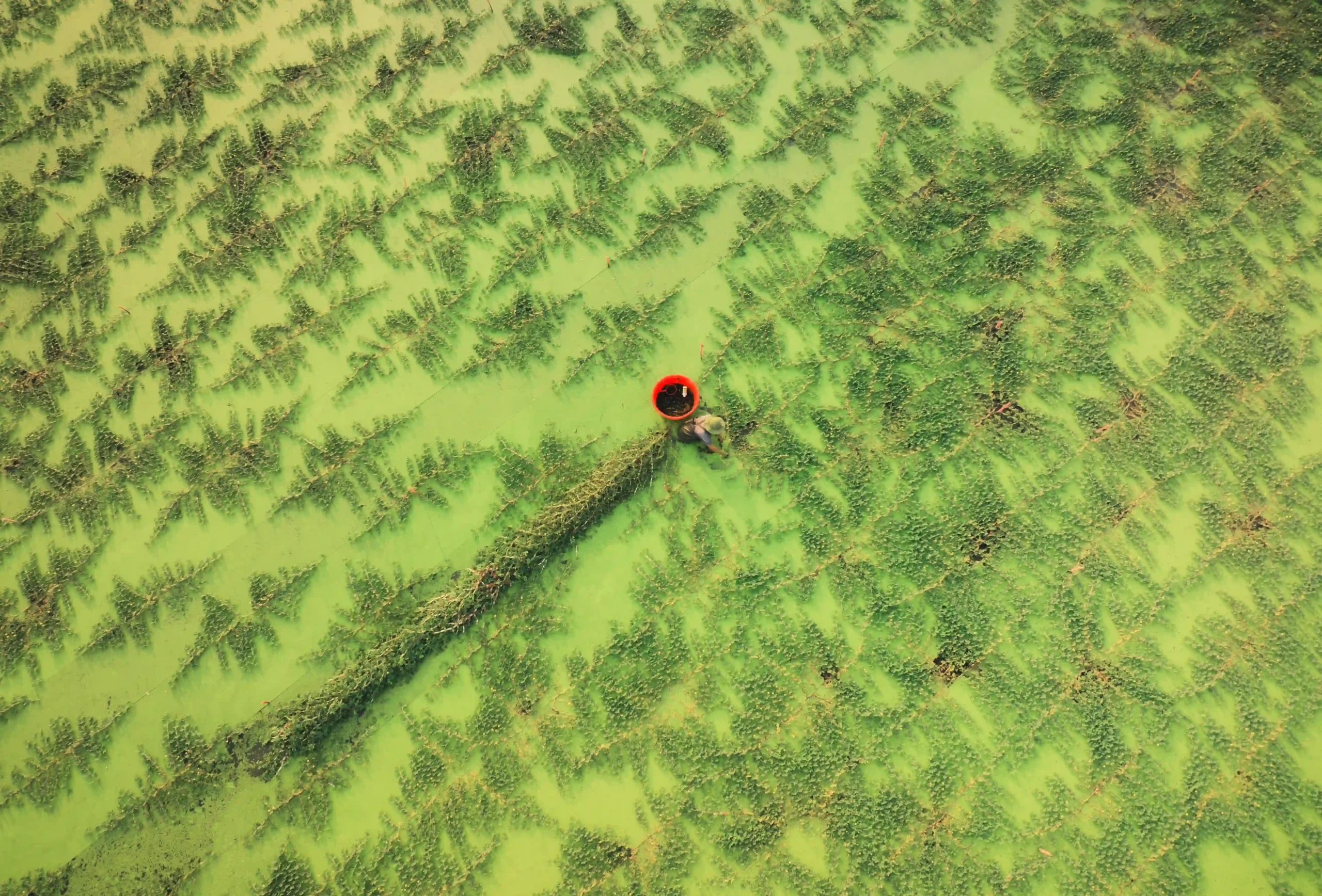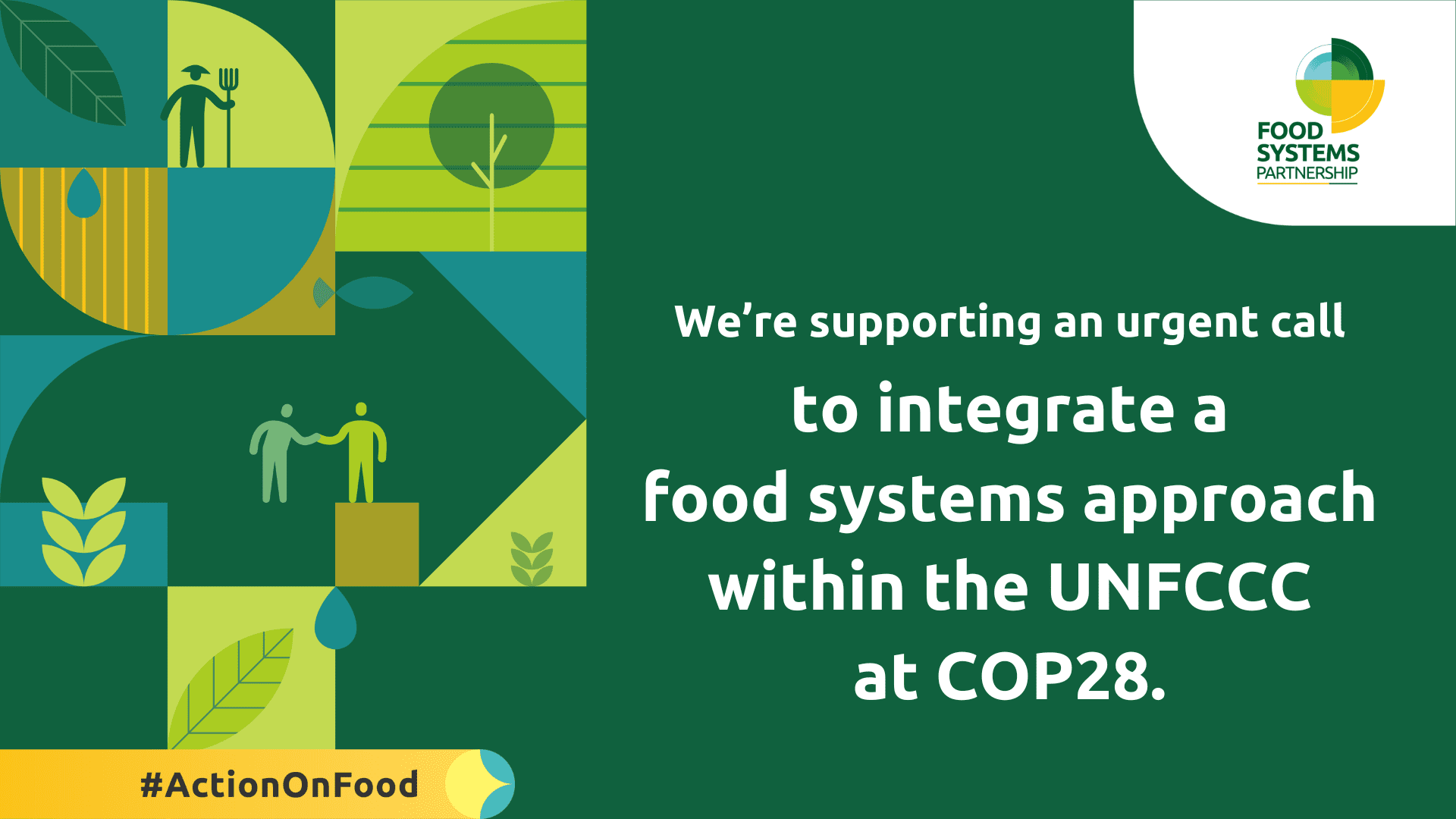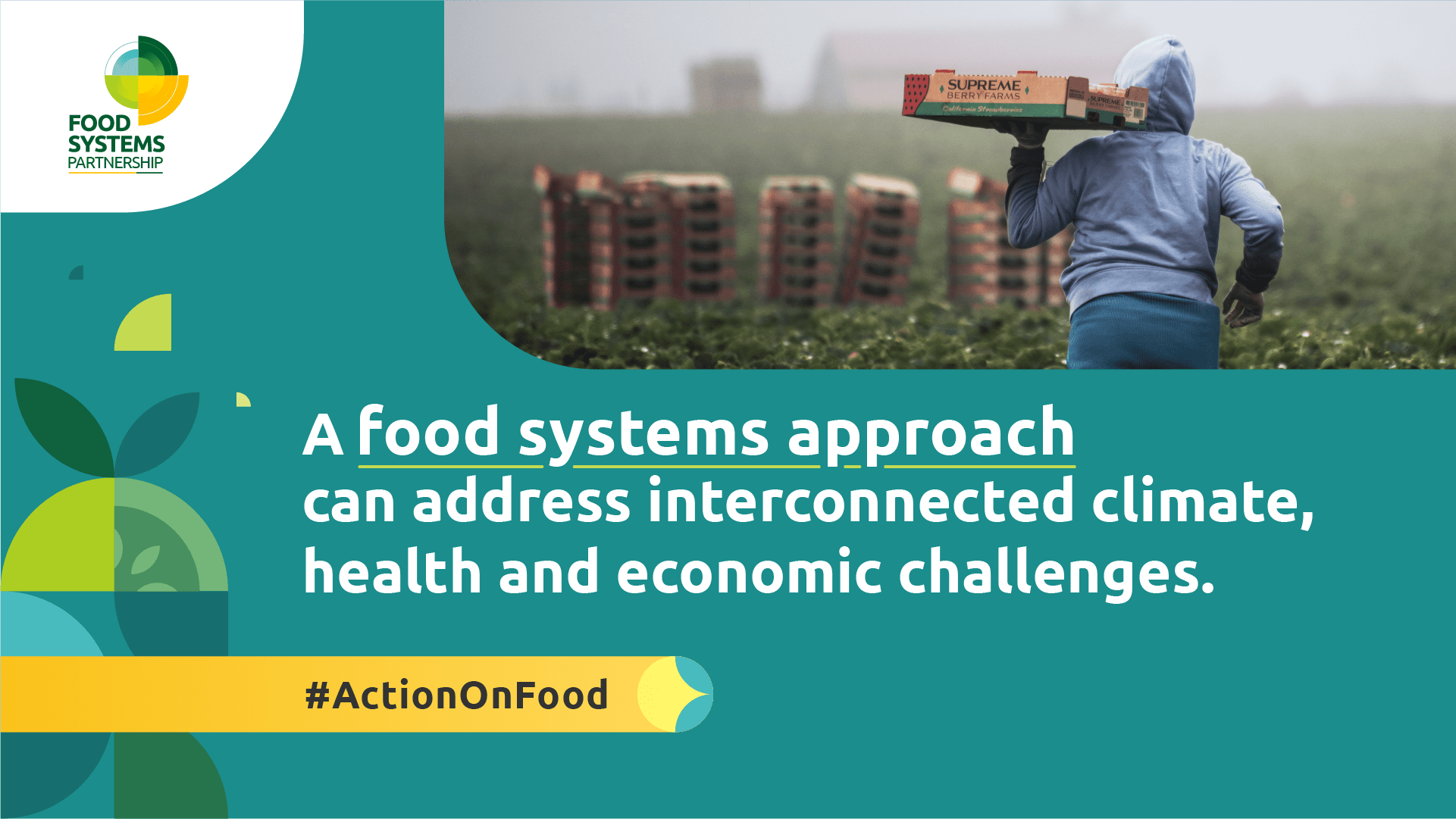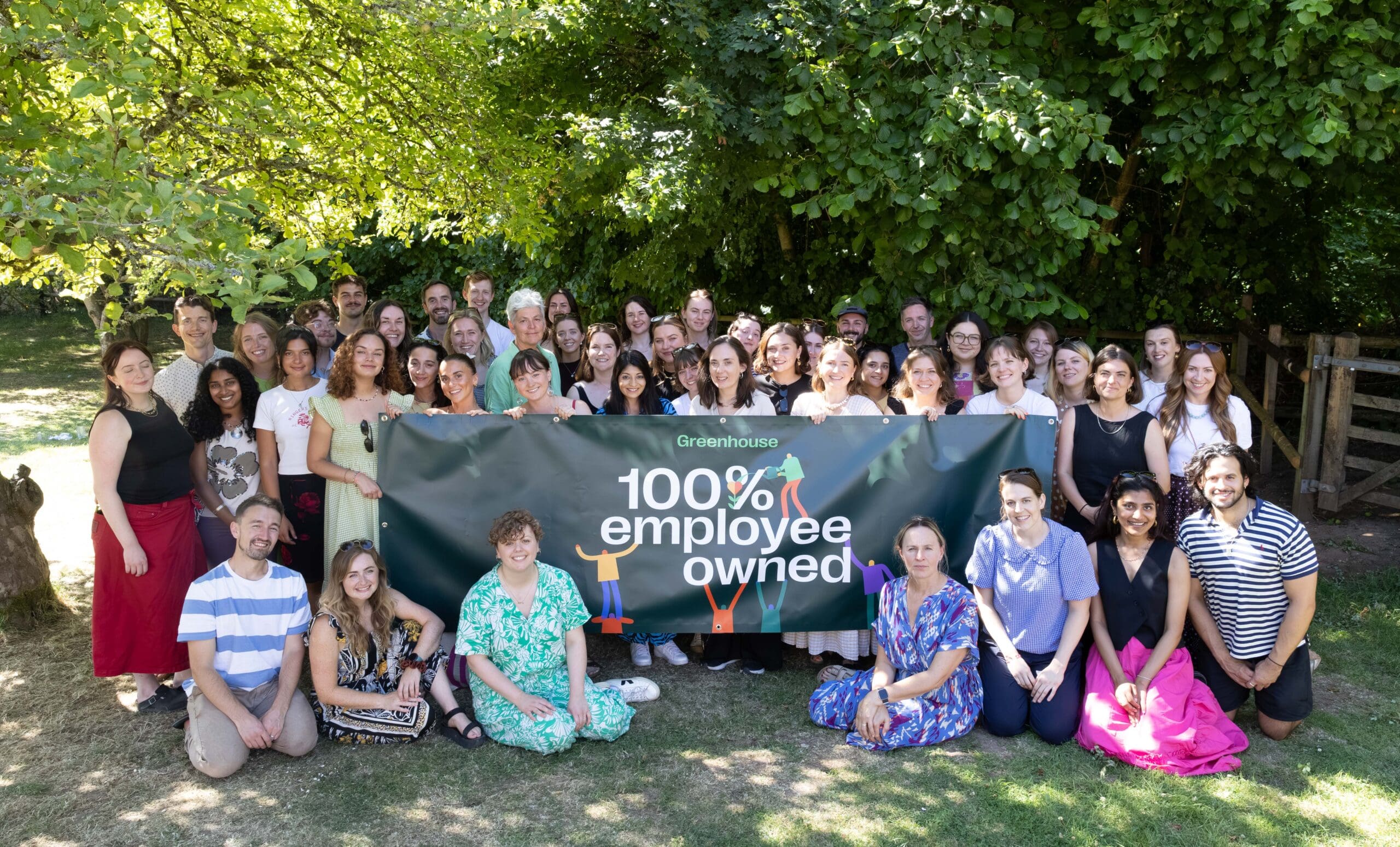Food systems matter for COP28 – Greenhouse Comms

Why 70+ organisations are calling for a food systems approach at COP28
Food is a problem (and solution) like no other when it comes to the climate crisis and COP28. Not only do food systems contribute over a third of global GHG emissions, but it’s also the sector most impacted by rising temperatures. Timely action on food systems is therefore a key solution to the climate crisis.
Even if we stop all non-food-related emissions immediately, the carbon from global food systems alone would exceed the limit required to keep global warming below 1.5°C.
Simultaneously, farming communities around the world are on the frontline of climate breakdown, suffering ever-more frequent drought, flood, and extreme weather events. They need to be able to adapt to continue putting food on the table – for themselves and for us.
Our food systems are also the largest sources of environmental degradation. Agriculture occupies half of our planet’s habitable land and is a threat to 86% of species at risk of extinction.
But despite being a source of carbon headaches, food systems hold much opportunity. For instance, transforming the world’s food systems could generate $4.5 trillion annually in new economic opportunities by 2030 according to the Food and Land Use Coalition (FOLU).
This crucial role of food systems in climate has not been properly recognised at previous UN Climate Change Conferences (COPs) and it’s why only 3 per cent of climate finance goes to action on food; 22 times less than transport and energy.
Last year, COP27 saw many firsts for food systems. The presidency hosted its first themed day focused on agriculture, it was the first time food systems appeared in the final COP cover text, and the Food Systems Partnership, supported by Greenhouse Communications, hosted the first-ever Food Systems Pavilion – one of five pavilions bringing the topic of food systems to the table.
But there are signs that the tide is turning.

Food systems hold the key to strengthening climate resilience
Momentum is building around the importance of food systems; the UN General Assembly hosted a pre-COP ‘Food Day’ to ‘raise the ambition of food systems transformation’ and, despite the controversy surrounding Sultan Al-Jaber and his COP28 Presidency, food security is a clear priority – as is the relationship between food and climate.
But there is work to be done, says Lucy Wallace, Chief of Staff at EIT Food, the organisation taking the role of Secretariat for the Food Systems Partnership.
Despite being hailed as the ‘first food COP’, the mandate was narrow, without language on food systems-wide climate action, and parties did not grant the United Nations Framework Convention on Climate Change (UNFCCC) the authority to address food systems transformation.
“COP27 failed to fully recognise the role of food systems in strengthening climate adaptation, mitigation and resilience,” says Wallace ahead of COP28. “This year we must go further and faster.”
A food systems approach at COP28
A ‘food systems approach’ is one of a number of buzzy phrases being deployed in the run-up to COP28. It refers to a holistic, systems-wide approach to recognise the interconnection between the many dimensions of the food system, such as food security, biodiversity, global heating, culture and health.
The Food Systems Partnership, alongside WWF and a 70-strong coalition of food and climate organisations, is calling for the adoption of such an approach in an open letter published today ahead of the FAO expert dialogues on 30 October. The open letter is pushing for negotiators to consider emissions beyond agricultural production – including those from food waste and consumption, land use change and biodiversity loss – in efforts to address climate mitigation and adaptation. The recent Pathways report by the Food Systems Partnership, released at the Bonn Conference earlier this year, identified six critical actions for nations to implement a food systems approach.
A food systems approach can help us look beyond just agriculture, and tackle more challenging issues like diet, pesticides, fertiliser, food waste and agroecology.
“I think the virtue of a systems-based approach is that if you just optimise one aspect of the food system for climate, you actually risk doing a lot of damage,” explains Ed Davey, Partnerships Director at FOLU. “Whereas if you look at the global system as a whole, and its interconnected parts, then you face a much better chance of achieving better outcomes for people, climate and nature together.”

Why is everyone talking about the Sharm el-Sheikh Joint Work
The Sharm el-Sheikh Joint Work on Implementation of Climate Action on Agriculture and Food Security (SSJW) is the successor to the equally catchily-named Koronivia Joint Work on Agriculture. Negotiations around the SSJW at COP28 will be of critical importance because the SSJW will determine the action the global community will take on food and agriculture.
The Food Systems Partnership community is calling for the integration of holistic policies and interventions. This means including a food systems approach within the agreed SSJW ‘roadmap’ and designating this as a key action area within a workshop. In the context of the new joint work, taking a food systems approach would at a minimum encompass three key elements: nature-positive food production, healthy sustainable diets and nutrition, and reduction of food loss and waste.
The global stocktake – what’s food got to do with it?
Another prominent phrase in the lead-up to COP28 is the global stocktake. Described as ‘the most brutal climate change report card’, the stocktake checks on countries’ climate action in accordance with the historic Paris Agreement in 2015.
The results are in and they’re not good. According to a report released in July this year, global emissions need to be slashed by a further 43 per cent by 2030 to limit warming to 1.5 degrees Celsius, one of the main goalposts of the Paris Agreement.
But it presents a unique opportunity to accelerate action, says European Climate Foundation CEO Laurence Tubiana. ‘It carries a lot of weight,’ she told Vox Media.
“The [stocktake] is looking backwards, but even more importantly setting the direction for the next phase of climate policymaking,” says Tubiana.
Jenny Briggs, Greenhouse Communications’ Head of Food, sees this as an opportunity. “Food systems can play a key role in helping to close this gap,” she says.

Regenerative agriculture is on everyone’s lips
There has been huge excitement about how regenerative agriculture – a set of farming practices that builds soil health rather than depleting it – can help farming become a solution rather than the cause of the climate and biodiversity crises. That is set to continue at COP28.
We expect to see discussions centre around the exciting reveal of an outcomes-based framework from the Regen10 initiative – but conversations will likely be tempered by accusations around greenwashing of the term and a call for the sector to consider regenerative food systems across the whole value chain – so the burden is not felt solely by farmers.
COP28 host, the United Arab Emirates, has launched a new drive to promote the adoption of regenerative agriculture at scale, supported by the UN Climate Change High Level Champions, the World Business Council for Sustainable Development (WBCSD) and Boston Consulting Group (BCG).
Regenerative practices are only used on 15% of cropland globally at present; this proportion will need to exceed 40% under the Paris Agreement.
The Food Systems Pavilion: #ActionOnFood
Greenhouse is supporting the Food Systems Partnership to push for more meaningful and ambitious #ActionOnFood at COP28. The Food Systems Pavilion is a dedicated space in the Blue Zone at COP28, putting food centre stage during these crucial negotiations. Greenhouse will be supporting this coalition of leading international food organisations to collaborate by bringing diverging perspectives together, and seeking opportunities to accelerate the transition to healthy, resilient, and equitable food systems.
Advocating for smallholder farmers from across sub-Saharan Africa will be a critical component of the Greenhouse agenda as we continue our work with social enterprise One Acre Fund. We’ll also be media training and supporting a cohort of farmers and frontline community advocates travelling to COP through sponsorship from the Global Alliance for the Future of Food.
As Wallace reiterates in a recent opinion piece authored for the International Institute of Sustainable Development: “It is time for food systems to be at the forefront of climate action.”


